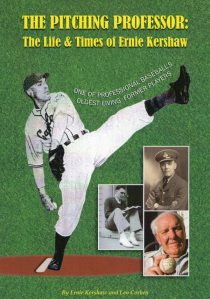My “Top 3” blog list is becoming a bit of a tradition with previous Top 3 lists for 2011 (here) and 2010 (here). This “top” list is an opportunity to review ideas that have become a big part or our learning over the past 12 months, which may have been missed in the “drinking from the firehose” approach (what has become social media and the Internet). I continue to shuffle the categories, trying to take a different approach to these year-end lists. They are a great way to raise topics, discussion, debate, and perhaps shed some light onto areas deserving more attention (or topics missed) as the year went on. I look forward to others adding their thoughts on my “Top 3” of 2012.
Top 3 “Culture of Yes” Blog Posts which have Generated the most Traffic this Year:
1. The Multi-Sport High School Athlete
2. If School Was More Like Swimming
3. How My Teaching Has Changed
Top 3 Used (and often overused) Terms in Education for the Year:
1. Game Changer
3. Flipping It
Top 3 Growing Trends I See Continuing in the Next Year:
1. Self-Regulation (but more broadly social-emotional learning)
2. Outdoor learning (outdoor classrooms and full outdoor programs)
3. Low / No Cost Conference Events (e.g. Edcamps)
Top 3 Books I have Read this Year that have Influenced My Thinking:
1. Why School? by Will Richardson
2. 11 Rules for Creating Value in the Social Era by Nilofer Merchant
3. How Children Succeed: Grit, Curiosity and the Hidden Power of Character by Paul Tough
Top 3 Professional Development Events I have Attended:
1. Visit to Finland (Here and here are my two posts on the visit)
2. Two Library-related events: the BCTLA PSA Conference in October and the Changing Times; Inspiring Libraries Summit in December
3. West Vancouver Opening Day with cultural-anthropologist Jennifer James
Top 3 BC Edu-bloggers that I didn’t know about 12 Months ago, and now Follow:
1. Anthony Ciolfitto – Principal, Riverside Secondary School, Port Coquitlam
2. Stephen Petrucci – Director of Instruction, Fort St. John
3. 180 Days of Learning – Delta School District (cool project!)
Top 3 Non-education New Twitter Follows:
1. Rick Reilly – ESPN
2. Nate Silver – New York Times (FiveThirtyEight blog)
3. Andy Borowitz – New Yorker Magazine
Top 3 School-related Videos from British Columbia (that I bet you haven’t seen):
1. What a Teacher Makes – West Vancouver
2. VSB Transition from Elementary to Secondary School (VSB has lots of great videos)
3. Gino Bondi – Innovation and School Libraries (BC Libraries also has a number of other great videos)
Top 3 School-related TED Videos Posted this Year:
1. Will Richardson (TedxMelbourne)
2. Thomas Suarez: A 12 year-old app developer
3. Stop Stealing Dreams: Seth Godin
Thanks to everyone who continues to engage with me on my blog and push my learning. Our digital community is continuing to grow and I am thrilled to be connected to so many thoughtful teachers, parents, students and community members. Blogging is not easy, but it is exceptionally rewarding. I look forward to continuing to grow and learn together in 2013.
Chris Kennedy



